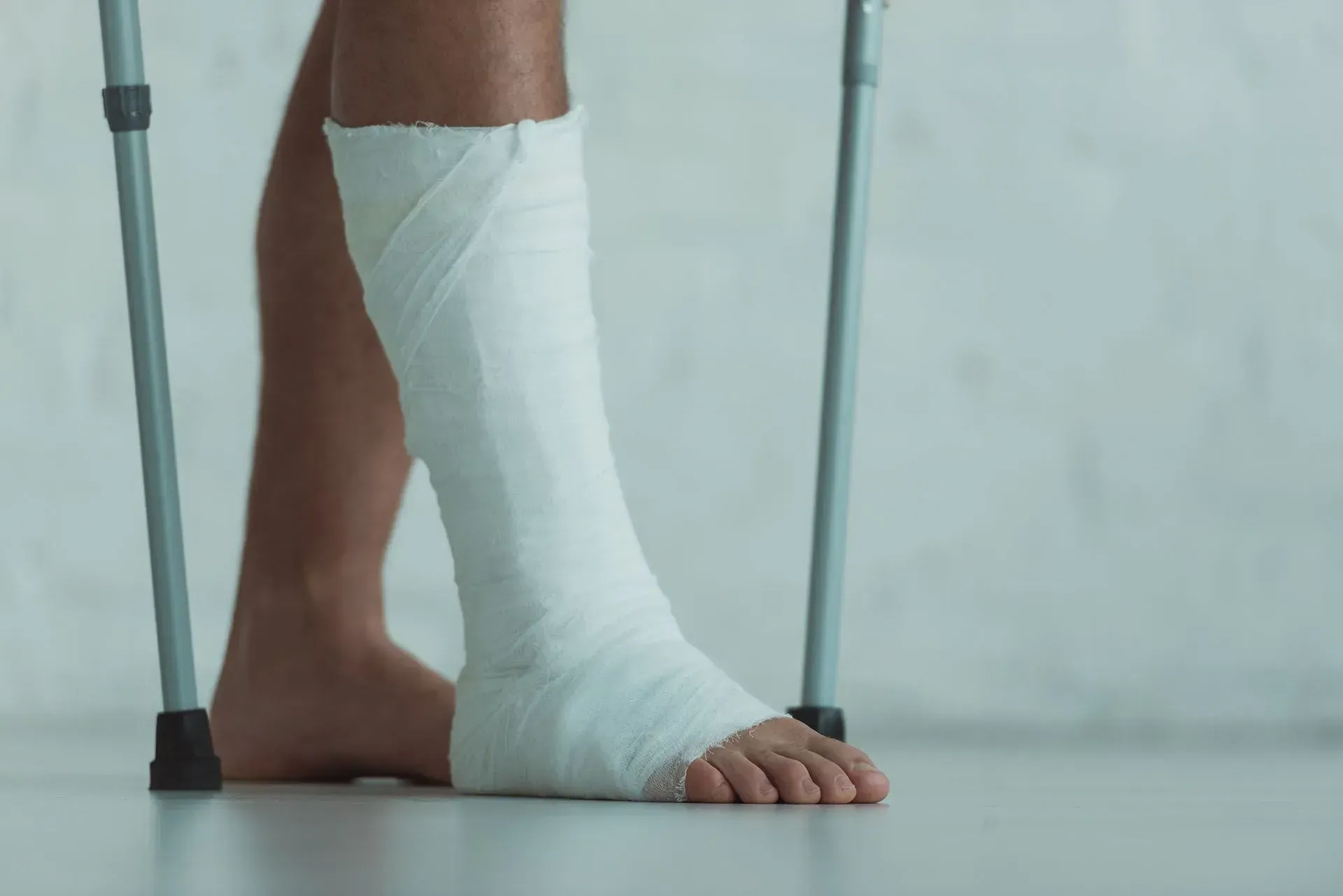Call Us Today
Will I Go to Jail for Assault Causing Bodily Harm?
Have you been convicted of assault occasioning bodily harm? Perhaps you are concerned about whether you will go to jail for such an offence? If you are facing this challenge, it's important that you identify potential defence strategies early on to increase your chances of a favourable outcome.
In this blog, we'll look into the intricacies related to this assault including the potential penalties and various defense strategies that may be applicable to your case. Whether you're dealing with the consequences of an accusation or just want to understand more about the law, this article will offer helpful insights and guidance for anyone facing this offence.
What does 'actual bodily harm' mean?
'Actual bodily harm' (ABH) is a legal term used in many jurisdictions to describe a level of harm or injury caused to a person. It generally refers to physical injuries that are more than trivial or minor, but fall short of grievous or serious harm. However, these injuries though, don't need to be permanent. Given their ordinary meaning, 'Actual Bodily Harm' refers to an injury that affects the victim's health or comfort.
Some examples of actual bodily harm include:
- bruises
- cuts
- burns
- concussions
- grazes or scrapes
- fractures
- internal injuries

If you have been charged with assault causing actual bodily harm, you can be charged with an indictable offence and may even face more serious punishments under criminal law. To get the best possible outcome for your case, it's best to work with a reliable criminal lawyer immediately.
What is the difference between actual bodily harm and grievous bodily harm?
Actual bodily harm typically involves less severe injuries that result in harm to the physical health or comfort of an individual. These injuries are generally not life-threatening but are significant enough to cause pain, discomfort, or injury that requires medical attention. These include bruises, cuts, or injuries that result in temporary impairment.
On the other hand, grievous bodily harm involves more serious and severe injuries that cause substantial harm to the victim. The injuries sustained in this offence are often life-threatening and result in permanent disability, or causes significant and lasting damage to the victim's health, physical well-being, or appearance. These include fractures, severe lacerations, injuries leading to organ damage, or injuries that result in long-term impairment.
Assault Occasioning Bodily Harm vs Common Assault: Which is a more serious offence?
While common assault involves causing apprehension or fear of physical harm, assault occasioning actual bodily harm involves actually causing physical harm to another person. Thus, the latter offence is often viewed as more severe because it results in tangible injuries, making it a more serious offence.
Consequently, penalties for assault occasioning actual bodily harm are also typically heavier than those for common assault, reflecting the increased level of harm caused in the commission of the offence.
Understanding the difference between these offences and other wounding offences in NSW is essential for legal practitioners to determine what kind of legal consequences and charges may be applied based on the unique circumstances of each case.
What are your options when charged with an assault occasioning actual bodily harm?
When charged with assault occasioning actual bodily harm (ABH), you have the option to plead guilty or not guilty. Depending on your specific circumstances, it's crucial to seek legal advice and explore the following options.
Pleading not guilty
If you believe you are innocent or have a valid defence, you may choose to plead not guilty. For this option, the prosecution typically needs to establish the following beyond reasonable doubt:
- Either you behaved in a manner that induced fear of immediate and unlawful personal violence in another person or you made physical contact with another person without their consent.
- That your actions were not consented to by the other person.
- That you intentionally or negligently engaged in your actions.
- That you lacked a lawful excuse for your conduct.
- Inflicted a physical injury beyond brief or minor, such as bruises or scratches, or caused significant psychological harm.
Pleading guilty
If you do not want to contest the charges, you may consider filing a guilty plea at an early stage. Pleading guilty to the court demonstrates that you acknowledge responsibility for your actions. Consequently, the magistrate may choose to give a less severe penalty.
Getting convicted for assault occasioning bodily harm is quite likely. Usually, the court starts by recording a conviction and deciding on penalties. However, there's still a chance the court might choose not to convict you if there are compelling reasons not to do so.
Pleading guilty allows you to save both time and money by avoiding a contested hearing to establish your innocence. Ultimately, it is still in the magistrate to determine the suitable penalty by taking into account all the facts and circumstances of your case.
What potential penalties can you get from being charged with assault occasioning actual bodily harm?
Penalties are typically outlined in criminal statutes, and they can differ significantly from one jurisdiction to another. But in general, depending on various legal factors, previous criminal history, and the specific circumstances of the case, penalties may include:
Fines and Imprisonment
Typically, such offence will be addressed in the Local Court presided over by a magistrate, where you may be charged with a fine. In other cases, the prosecution may request that your case be adjudicated in the District Court, where you can be subjected to higher penalties, including a longer term of imprisonment.

Probation
Instead of or in addition to imprisonment, a court may order probation, requiring the offender to comply with specific conditions, such as regular check-ins with a probation officer or participation in rehabilitation programs.
Community Service
Offenders may be sentenced to perform a designated number of hours of community service as a way to make amends for their actions.
Restraining Orders
The court may issue a restraining order, prohibiting the accused from having physical contact with the victim for a specified period.
Section 10 – No Conviction Recorded
In NSW, if an individual is found guilty, they have the option to request that the court handle the case under section 10. Under Section 10 of the Crimes (Sentencing & Procedure) Act 1999, the court, after establishing the offence, may dismiss the matter. If your case is handled under section 10, it implies that you won't receive a criminal conviction, and there will be no additional penalties.
What other legal consequences can you expect from being charged with assault occasioning actual bodily harm?
Being charged with assault occasioning actual bodily harm (AOBH) can lead to various legal consequences. Some potential consequences include:
Criminal Record
A conviction for assault occasioning actual bodily harm can result in a criminal record, which may have long-term implications for employment, travel, and other aspects of life.
Civil Lawsuits
The victim may pursue a civil lawsuit for damages, seeking compensation for medical expenses, emotional distress, and other losses resulting from the assault.
Impact on Employment
A conviction, especially for a violent offence, can affect current or future employment opportunities. Some jobs may have specific requirements regarding criminal convictions.
Visa and Travel Restrictions
An assault occasioning actual bodily harm can also complicate the acquisition of visas for international travel.
Professional Licensing
Individuals in certain professions may face consequences with their licensing boards due to a criminal conviction.
What is the maximum penalty for assault occasioning actual bodily harm?
Under Section 59 of the Crimes Act 1900:
- Whosoever assaults another person and occasions actual bodily harm is guilty of an offence punishable by a maximum penalty of 5 years imprisonment.
- However, in cases of aggravated offences under this section, the District Court may impose a maximum penalty of 7 years imprisonment.
- According to the Crimes Act, the offence is considered aggravated if committed against a pregnant woman, resulting in the loss of, serious harm to, or the death of a child born alive as a result of the pregnancy. However, it would not be considered aggravated if the defendant proves beyond reasonable doubt, that they were unaware that the victim was pregnant.
Which court will hear your case?
Assault occasioning actual bodily harm charges typically reach resolution in the Magistrates Court, with a maximum penalty of two years imprisonment. However, given that assault occasioning actual bodily harm is an indictable offence, a person charged with it may also choose to transfer the case to the Supreme Court if they wish to have the matter determined by a jury. This option provides the accused with the opportunity for a jury trial, which is not available in the Magistrates Court.

What possible defences are available if charged with assault occasioning actual bodily harm?
Defences against a charge of assault occasioning actual bodily harm can vary based on the specific circumstances of the case and the laws of the jurisdiction. Here are some common defences that individuals may explore:
Self-Defence
Self-defence argues that the use of force is necessary for protection against imminent harm. This demonstrates a reasonable belief that the force used was proportionate to the perceived threat.
Defence of Others
This asserts that the use of force was to protect another person from harm. This establishes that the force used was reasonable and proportionate to the perceived threat to the other person.
Lack of Intent
This claims that the act leading to the bodily harm was accidental or unintentional. This establishes that there was no intent to cause harm.
Alibi
This provides evidence to show that the accused was not present at the location of the alleged assault during the time it occurred.
Insanity or Mental Impairment
This asserts that, at the time of the alleged assault occasioning actual bodily harm, the accused was not mentally capable of understanding the nature and quality of their actions or did not know that their actions were wrong.
Infancy or Immaturity
This asserts that the accused may lack the cognitive capacity to fully understand the consequences and moral implications of their actions. Thus, the juvenile is too young or insufficiently mature to be held criminally responsible for the charge of assault occasioning actual bodily harm.
Duress
This asserts that the accused was under duress or threat of harm, compelling them to commit the assault. In such cases, the accused may argue that they were forced in a situation to act in a way they otherwise wouldn't have.
Takeaway
Being convicted of assault occasioning bodily harm is a serious offence that can have far-reaching consequences in your life. Aside from the social and professional repercussions, a conviction may result in imprisonment. Hence, it is important to take these charges seriously and seek legal advice promptly to explore possible defences and mitigate the consequences associated with the offence.
At Andrew Byrnes Law Group, our assault defence lawyers can provide expert guidance tailored to your specific case. Our team understands the complexities of assault charges and we can develop a strong defence strategy to help you avoid imprisonment. Book a free meeting today to achieve the best possible outcome for your case.



















